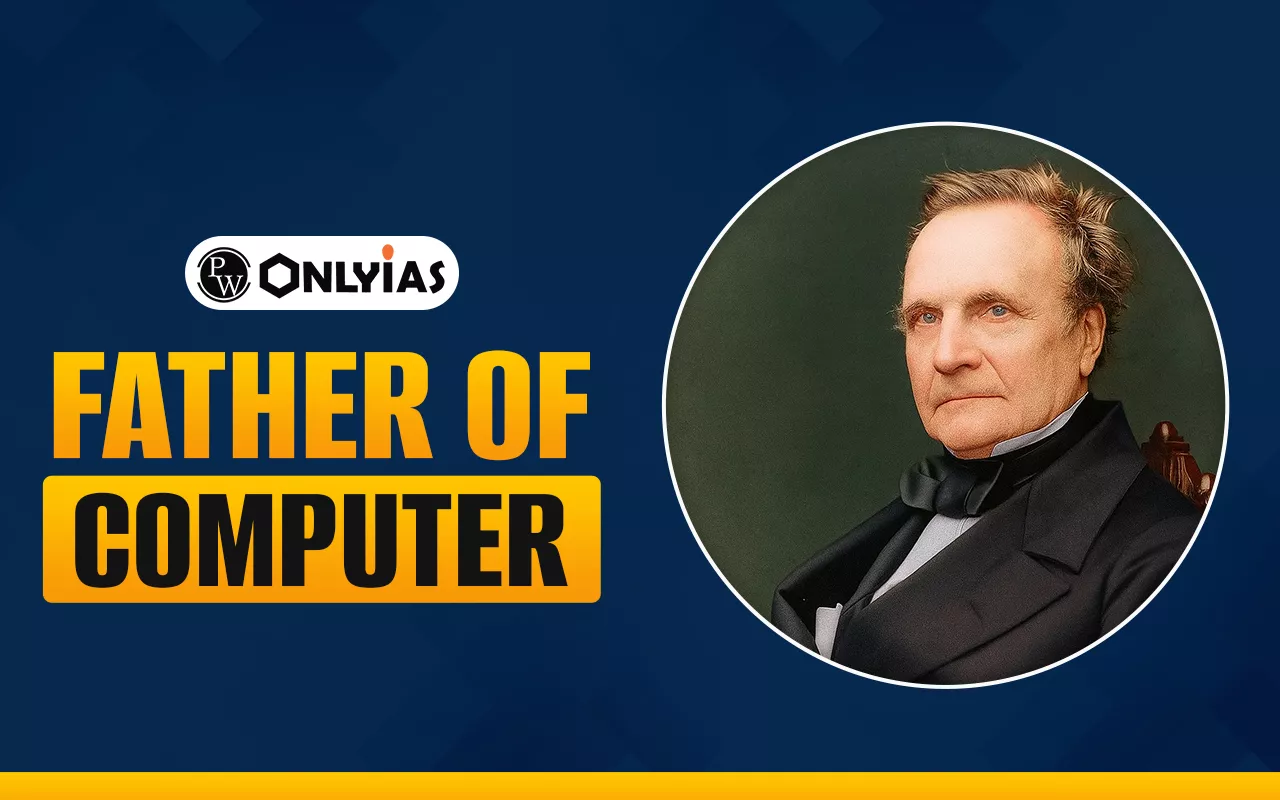Father of computer is a title given to the person who gave early ideas for computing machines. Students who study computer history often search for who is the father of the computer. It should be noted that Charles Babbage is the father of Computer.

Father of computer refers to the person who designed early computing concepts that later changed into modern computers. Charles Babbage holds this title. His work built a base for machines that could calculate without human help. In addition, India also has important names connected to computer science.
Charles Babbage created designs for systems for computing purposes, not complete machines. Still, his ideas changed how calculations could be done forever. At the same time, Indian scientists helped bring computers and supercomputers to the country.
The father of computer is Charles Babbage. Many students also ask, Who is the original father of computers? The answer stays the same. He is known for designing machines that could follow steps to calculate. Furthermore, his ideas included memory and automatic processing, which are found in computers today.
Further, the table below gives a simple summary of the father of computer to help students remember quickly:
| Details about the Father of computer | |
|---|---|
| Detail | Information |
| Full Name | Charles Babbage |
| Known As | Father of computer |
| Country | Britain |
| Main Work | Difference Engine and Analytical Engine |
| Time Period | 19th century |
Charles Babbage was a mathematician and inventor from Britain. He is called the father of computer because he planned machines that could solve maths problems on their own. Even though his machines were not fully built during his time, his ideas were very close to modern computers.
His Analytical Engine design included memory, a processing unit, and step-based instructions. In addition, his work introduced the idea that machines could follow a plan and give results without human calculation. Because of this, students across the world study his work today.
Many students also ask about the father of computer in India. India has more than one important name in computer history. However, when the question is asked about Indian supercomputers, the answer is Vijay Bhatkar. He is known for building the first advanced supercomputers in India.
His work started at a time when computers were very new to India. Furthermore, his projects helped India join the list of countries that could build their own high-speed computing machines. His efforts also opened doors for computer research and learning in the country.
Check Out UPSC CSE Books
Visit PW Store
India entered modern computing with a vision for the future. Limited access to foreign supercomputers pushed Indian scientists to create domestic solutions, leading to the PARAM series. Over time, India also became a global IT powerhouse, supporting businesses and digital services worldwide. Indian computing strength is not only seen in software but also in space technology, satellite systems, and national digital infrastructure. With strong professionals, research institutions, and expanding AI focus, India continues to shape the future of computer technology in many fields.
The role of father of the computer mainly belongs to Charles Babbage because he gave the first clear idea of a thinking machine. He showed that machines could follow steps, save information, and solve maths problems without human help.
His designs taught future inventors how computers could work. In addition, his Analytical Engine included memory and a processing plan, which are still part of computers today. His role was not about building a finished computer, but about showing the world how a computer should work. At the same time, his work guided others who later built real machines based on his ideas. His role changed the path of computing history.
Ready to boost your UPSC 2026 preparation? Join PW’s UPSC online courses today!
Charles Babbage is recognised as the father of the computer for designing the first calculation machines with computer-like features.
The original father of computers is Charles Babbage because his ideas became the base for modern computer design.
Vijay Bhatkar is known as the father of the computer in India for creating the PARAM supercomputer series.
Charles Babbage designed the Difference Engine and the Analytical Engine, which worked like early computer plans.
<div class="new-fform">
</div>
